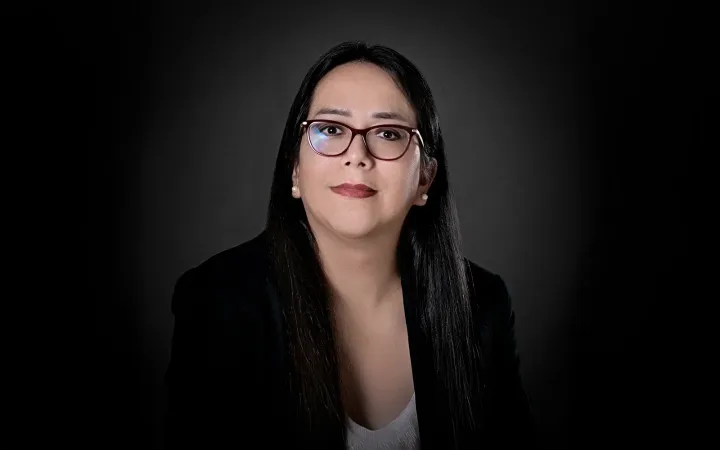By Adela Navarro Bello
With the threats made by the President of the United States, Donald Trump, already materialized and converted into decrees to activate them and put them into effect, the Mexican government has become a hostage of the binational economy. The most serious issue is not the massive deportation of Mexican migrants in the U.S., nor is the cancellation of appointments for asylum or refuge in the neighboring country; the most important issue is the 25 percent increase in tariffs on Mexican export products.
With this very premise, the president of the United States has begun negotiations to once again bend Mexico to his will on two issues that are of utmost importance to him: the fight against drug cartels, the eradication of the final production of fentanyl in the country, the closing of the southern Mexican border, or at least security to prevent the passage of migrants.
Despite the fact that Mexico has had a severe insecurity problem that has maintained a sustained growth since the administration of President Felipe Calderón Hinojosa, passing through that of Enrique Peña Nieto and consolidating in the administration of Andrés Manuel López Obrador with more than 200,000 executions in just under six years, in the last two federal administrations the criminal phenomenon has been minimized.
The official policy has been to ignore the issue, to dismiss the high impact violence generated by drug cartels, to accuse the opposition of campaigns to destabilize governments, and to praise a society that is presumed to be free of crime, addictions and delinquency, although none of this is a reality.
Although on some occasions drug traffickers have been investigated and tried for acts of terrorism (the massive car fires in August 2021, the threats to the media, the placement of narco-banners), the Mexican government has not used that figure or classification of crime to undertake a real, concrete and comprehensive strategy to combat organized crime, to reduce the rates of intentional homicides. Although that could be about to change.
Two elements would signal the beginning of a change: Trump's executive orders affecting the Mexican economy, and the classification of Mexican cartels as terrorist organizations in the United States.
In the binational negotiation, in an attempt to prevent the tariff increase from taking effect as of February 1, 2025, Mexicans could gain some security if among the issues that the Mexican government cedes is the fight against drug cartels, particularly the importation, production, cutting, distribution and trafficking of fentanyl.
On Thursday, January 23, 2025, INEGI released the index of perception of security in the country where it highlights that 61.7 percent of Mexicans consider that it is unsafe to live in their city, a situation that the Morena governments do not accept, as López Obrador did not, and now President Claudia Sheinbaum Pardo does not face, who has said that Mexico is one of the families that do not suffer from addictions, even with the harshness of the figures of violence and insecurity and the clarity of the INEGI survey.
This perception of Mexicans of feeling vulnerable to crime in the cities where they live is shared by others: foreign migrants who have crossed the country to the United States and who have lost family members, who have been victims of attacks, extortion, and death. The same is true of the authorities of the neighboring country that now include drug traffickers in the migration issue to justify a border closure or the signing of a decree for massive deportation: Mexicans are bad, they are dangerous, that is the premise.
A week ago, in Baja California Sur, members of the Navy confiscated 2.2 tons of cocaine in the seas off Cabo San Lucas, where they also seized nine people and thousands of liters of fuel. When the local authorities investigated the facts, they revealed that the tons of cocaine reached the Baja California peninsula through a maritime drug route that was not monitored by the competent authorities, which the drug traffickers used systematically and with impunity to transport drugs by sea, from Central America to the Baja California peninsula.
There are hundreds of such routes in the country that have been abandoned since the six-year terms of Enrique Peña Nieto and López Obrador, during which dozens of checkpoints on highways, towns, hills, mountains, seas and coasts were eliminated, thus opening the way for the cartels to traffic drugs in Mexican territory and into the United States.
It is important that once Trump is sworn in as president of the United States, and with the decree signed to consider Mexican drug cartels as terrorist organizations, while making official the increase in tariffs on Mexican products, the seizures of tons of drugs, extraditions, arrests and investigations are intensified in the country, still in asylum, but to unravel narco-political networks.
Perhaps, and only perhaps, in the binational negotiation to reach an agreement on the tariffs issue, the most ignored social demand of recent years by the Mexican governments will materialize: that the drug cartels be fought head-on and adequately, that investigations be carried out to dismantle the money laundering structure, that drug processing and production be stopped and eradicated, and finally, that the drug lords be arrested to bring them to justice... to see if something good comes out of the bad.

The opinions expressed are the responsibility of the authors and are absolutely independent of the position and editorial line of the company. Opinion 51.






Comments ()